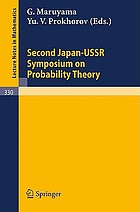- Library
- LibGuides
- Information literacy - old version
- Types of literature
Introduction
Not all information is suitable for every purpose. Sometimes you will need to find out about the latest advances in your subject area, sometimes you will need statistics to back up your report, sometimes you will need a general overview of a subject, or you may need to explore the subject in depth.
This information can be found in a range of sources. Before you begin searching, you need to have a clear idea of the different types of information and related sources: are you looking for general information, in-depth information and/or current information?
Do you have an overview of the available sources? If so, you can make a list of relevant sources for your specific search. This is what you will work with.
General information
Handbook
A handbook is a synthesis of the current knowledge in research, in a particular research area or in a research sub-discipline.
Handbooks or textbooks deal with extensive subjects (e.g. the history of Latvia).
They are not intended to be read from beginning to end but are essentially reference books providing basic background information about a subject. They should be consulted if you have to write about a particular subject but lack the basic knowledge.
Encyclopaedia
Encyclopaedias are used to find information quickly. Entries in an encyclopaedia are usually in alphabetical order. Wikipedia is an example of an online encyclopaedia. If you use Wikipedia, remember that the quality of the information varies and the information may not be 100% reliable. This is because anyone can contribute to it. Encyclopaedias in the University Library collection are reliable and of the required quality.
Dictionary
You use dictionaries to look up terminology; concepts that relate to your subject.
In-depth information
Monograph
A monograph deals with one fairly specific subject, which is discussed in detail. Monographs are usually between 200 and 300 pages long. A characteristic of a monograph is that it contains a lot of information and explores the subject in great depth. It takes quite a long time to produce a monograph. If you need very recent information, it is best to use journal articles.
They are published in printed form, but more and more monographs are published in digital format as e-books.
Journal article
Academic articles are published in academic journals. An article is a report of research that the author has carried out. Articles deal with the subject in depth and specialist jargon is used. Academic articles provide a picture of the developments in the subject area. They give a comprehensive view of recent research.
Although some academic journals are still published in printed form, the emphasis is shifting towards online publication, i.e. e-journals.

Click here for an instructive video of Purdue University about academic articles.
Edited works
A publication containing articles by various authors, published under the supervision of an editor. Conference proceedings are an example of an edited work.
Report
Although they are not academic publications, reports by government organizations, think-tanks and companies are useful sources of information in many fields of academic research. They contain:
- the aims and objectives of social organizations
- policy evaluations
- effect reports
- political and ethical interpretations of academic advances
- survey results
Statistics
You use statistics when you need figures to back up your report or research. Examples of statistics databases:
CBS Overview (Statistical institutes by Statistics Netherlands)
CBS Statline (Statistics Netherlands)
Eurostat (Statistical database of the European Commission)
Up-to-date information
Journal articles
Recent research is published in scholarly journals. Therefore articles from recent issues of scholarly journals are highly suitable sources for recent information on a subject.
(see ‘In-depth information’)
Newspapers
Newspaper articles contain very recent information. Although they do not contain academic information, newspapers can be a useful source. The University Library has subscriptions (including online subscriptions) to the main Dutch and foreign newspapers. In the Nexis Uni database you can search for newspaper articles by keyword.
Conference material and proceedings
This is an important source of recent research. When a conference is held, speakers are invited to present a paper about their current research. The papers are then published in a single volume as ‘conference proceedings’. In many cases, authors subsequently write articles based on their conference papers.
These conference proceedings are sometimes published quite a long time after the conference.In such a case the information will obviously not be very recent.
Sometimes academic journals dedicate a ‘theme issue’ to a conference. Collections of conference articles often have the word ‘proceedings’ in the title.
Obviously, conference proceedings may also be published as e-books or e-journals, or online at a website.

Information found on the Internet
You can find many different types of information on the internet. Internet sites are regarded as academic sources if they meet at least one of the following criteria:
- The site or publication is the online version of an existing or previously printed academic publication.
- An academic institution has responsibility for the content. Examples include digital versions of theses.
- The author of the publication is named, it has a proper bibliography and the same methodical structure as an academic publication.
- The site or online publication is edited by at least one academic.
Statistics
For recent information on i.e. the number of inhabitants of the province of Groningen you can consult statistical databases.
See also 'In-depth information'.